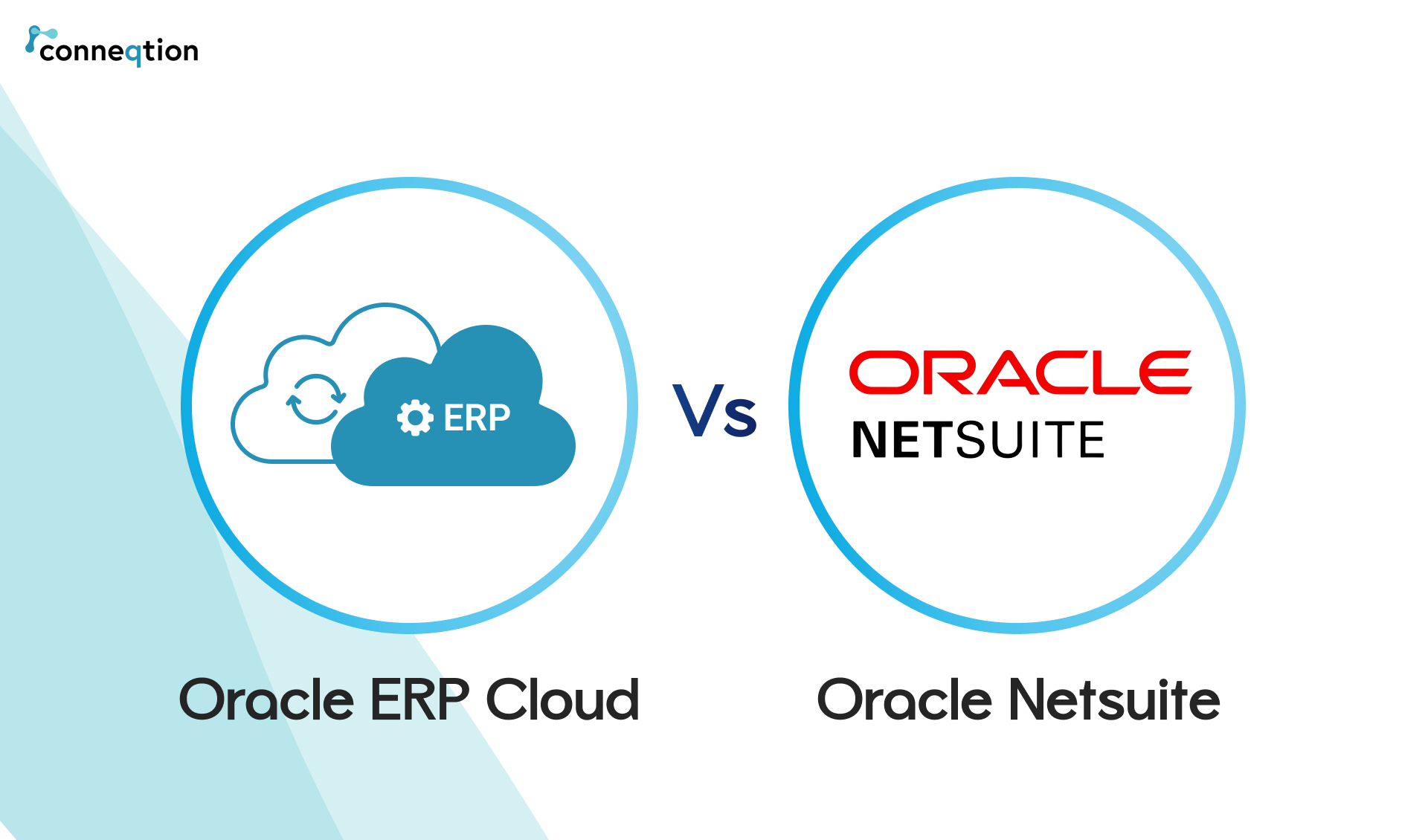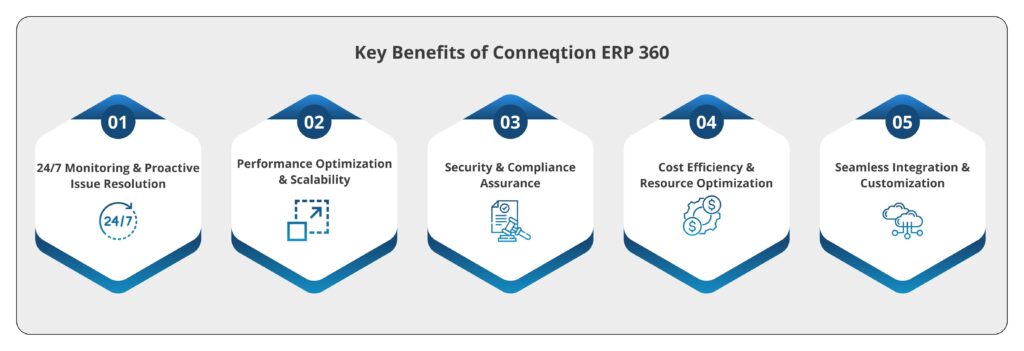Oracle ERP and NetSuite are two of the most popular ERP systems on the market. Both solutions provide businesses with a suite of integrated applications that can manage a variety of business processes. While both systems share similarities in terms of functionality, there are some key differences between Oracle ERP and NetSuite that set them apart. Understanding these differences is important for businesses that are looking to implement an ERP system or switch from one to the other.
In this blog, we’ll explore the key differences between Oracle ERP and NetSuite, including it features, scalability, deployment options, pricing, and target markets.

Purpose of the Oracle ERP cloud
The role of Oracle ERP Cloud is to deliver excellent service to businesses with an integrated suite of cloud-based applications that help them streamline their business processes. Oracle ERP Cloud provides a range of features, including financial, procurement, project management, inventory, supply chain management, etc. Overall, the platform can support businesses as they enter the digital world. To learn more about Oracle ERP, we have written a detailed guide explaining why Oracle ERP Cloud is right for your business.
What is NetSuite?
NetSuite is a cloud-based ERP software system offered by an American enterprise software company that provides ERP cloud service for small and mid-level businesses and offers businesses a comprehensive set of benefits. In November 2016, Oracle Corporation acquired NetSuite. Oracle ERP and NetSuite are offering a similar service for different business types. This also offers a variety of tools for reporting, analytics, etc. Let’s find out more about its features and benefits.
Features of NetSuite
Oracle NetSuite is a comprehensive cloud-based ERP software system that provides a range of features for businesses. Here are some of the key features of NetSuite:
Financial Management: NetSuite provides businesses with a suite of financial management tools, including a general ledger, accounts payable and receivable, fixed assets, and financial reporting.
Order and Inventory Management: The software enables businesses to manage their orders, inventory, and fulfillment processes from a single platform. This includes tools for inventory tracking, purchase order management, and order fulfilment.
Customer Relationship Management (CRM): NetSuite offers a range of CRM tools to help businesses manage their customer interactions and relationships. This includes lead and opportunity management, sales forecasting, and customer support.
E-commerce: NetSuite enables businesses to manage their e-commerce operations, including online storefronts, shopping carts, and payment processing.
Payroll Management: The software also offers payroll management tools to help businesses manage their payroll processes, including tax calculations, employee data management, and compliance reporting.
Reporting and Analytics: NetSuite provides businesses with a range of reporting and analytics tools, including customizable dashboards, real-time data analytics, and financial planning and forecasting.
What is the difference between Oracle ERP and NetSuite?
Oracle ERP and NetSuite are both enterprise resource planning (ERP) software systems developed by Oracle Corporation. While both software systems share some similarities, they are designed for different types of businesses and have distinct features. Here’s a detailed comparison of Oracle ERP and NetSuite:
 What is the customer adoption rate for Oracle ERP Cloud and NetSuite?
What is the customer adoption rate for Oracle ERP Cloud and NetSuite?
There is no specific customer adoption rate, whereas both services are different in size and have been experiencing growth and success with their respective customer bases. We have mentioned the user response to Oracle ERP and NetSuite.
According to Oracle Corporation, customers are using Oracle Cloud ERP to quickly adopt new business models and processes, reduce costs, and innovate more, putting them on a path to resilience, agility, and growth. Additionally, Oracle reported that its cloud services and license support revenue increased by 5% year-over-year, with growth driven by its cloud ERP offerings.
On the other hand, NetSuite has a better customer adoption rate, especially among SMB customers, as its cloud-native platform is better suited for the needs of small and midsize businesses. Additionally, Oracle reported that its NetSuite business has grown by double digits for 25 consecutive quarters, indicating strong customer adoption rates for the software.
Which is easy to adopt Oracle ERP or NetSuite?
The decision to adopt either Oracle ERP Cloud or Oracle NetSuite depends on various factors, including the organization’s size, industry, budget, and IT infrastructure. Both Oracle ERP Cloud and Oracle NetSuite offer powerful cloud-based solutions
In general, Oracle NetSuite is considered easier to adopt than Oracle ERP Cloud. NetSuite is a fully integrated cloud-based solution. NetSuite’s out-of-the-box configuration makes it easy to set up and implement, with minimal customization required.
So, we recommend if you want to use it for large enterprises, you can go with Oracle ERP Cloud, or if you want to use it for small and midsized businesses, you can choose Netsuite because it has already integrated with it. But make sure you have a bit of technical knowledge to handle this, or get support from Conneqtion Group, as we can assist you in the entire process of integration.
Conclusion
Finally, the ease of adoption will depend on the specific needs and resources of an organization. Companies with complex operations and larger budgets may find Oracle ERP Cloud a better fit, while smaller organizations with simpler needs may prefer the simplicity of Oracle NetSuite.


 What is the customer adoption rate for Oracle ERP Cloud and NetSuite?
What is the customer adoption rate for Oracle ERP Cloud and NetSuite?